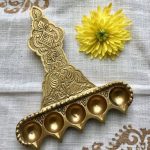Kusha grass, also known as Durbha, is a sacred element deeply rooted in Ayurveda, Hindu rituals, and Vedic tradition. Revered for its purifying and protective qualities, this grass has been used for centuries to enhance both spiritual and physical well-being.
Mythological and Spiritual Roots
According to legends, kusha grass emerged during divine events like the Samudra Manthan, where Lord Vishnu’s influence sanctified it. Ancient texts mention its power to absorb negative energies and channel divine vibrations, making it a vital element in rituals and meditation practices.
Key Benefits of Kusha Grass
-
- Purification: Sprinkling holy water with kusha grass sanctifies spaces, objects, and participants during rituals.
- Protection: Priests wear kusha rings during pujas to guard against negative energies and boost spiritual focus.
- Meditation Aid: Sitting on a kusha mat helps retain energy, stabilizes the mind, and supports mantra recitation.
4. Ritual Importance: Used in shraddha, weddings, upanayana, and fire rituals to connect with ancestors and create sacred boundaries.
5. Everyday Use: Placing kusha on food and water during eclipses is believed to shield against impurities.
Kusha grass is not just a ritualistic symbol. It represents purity, humbleness, and spiritual protection. Its presence helps create a sacred space at home, in temples, and in personal spiritual practices.
Bring the essence of Kusha grass into your rituals and meditation. Experience the purity, protection, and sacred energy it has offered for generations.
Feature Image Credit: Pinterest.




